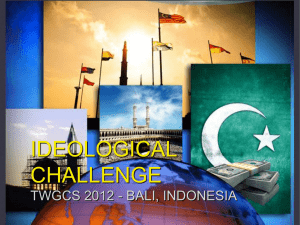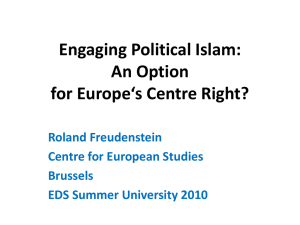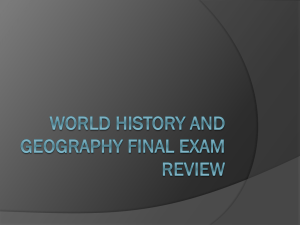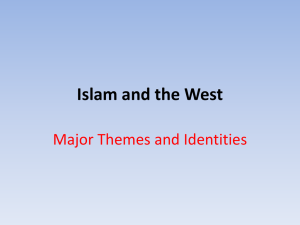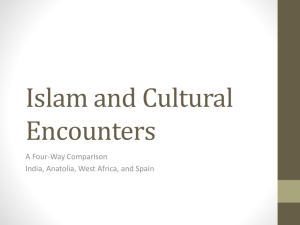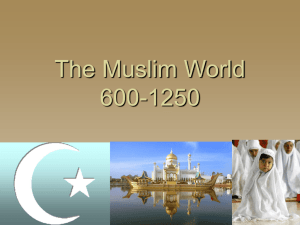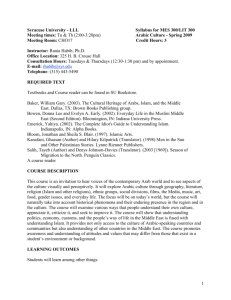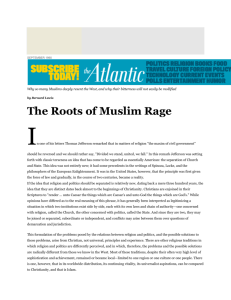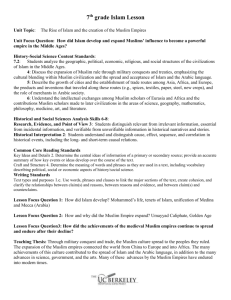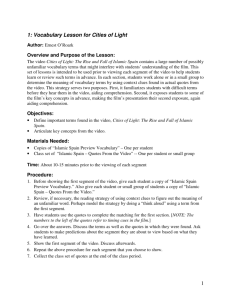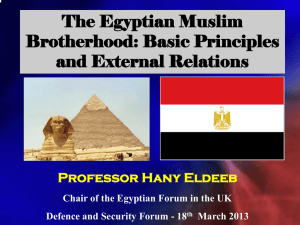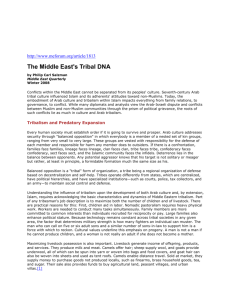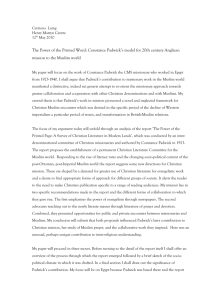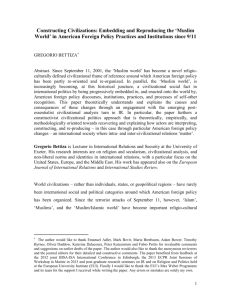Islam & Cultural Encounters - AP World History with Ms. Cona
advertisement
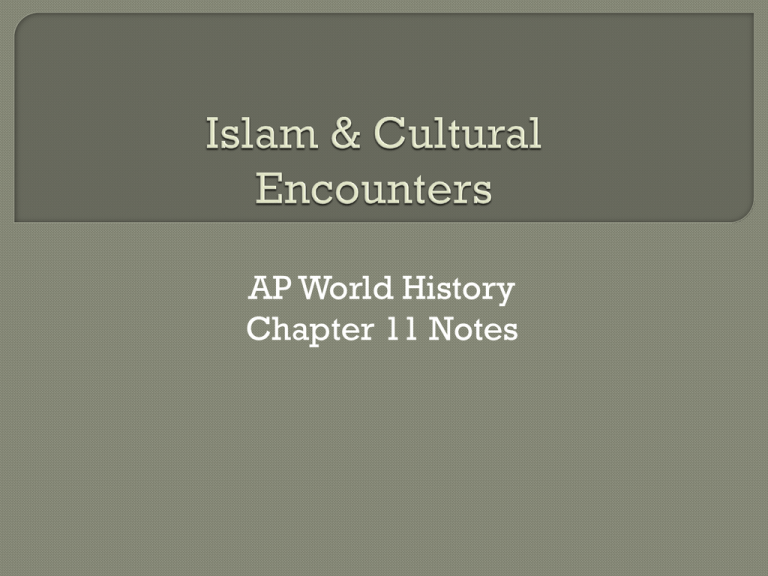
AP World History Chapter 11 Notes Even after the Arab Empire fell apart, the Islamic civilization continued to grow Major areas of Muslim expansion: India, Anatolia, West Africa, and Spain Islam brought to India by Muslim Turks from Central Asia Violent invasions destruction of Hindu and Buddhist temples Their conquests led to a series of Muslim-led governments in India Islam never became the dominant faith in India like it did in the Middle East, North Africa, and Persia Very sharp cultural divide between Islam and Hinduism prevented mass conversion Monotheistic Polytheistic No Endless representation of Allah Equality of all believers Sexual modesty statues and images of the divine Caste system Sexual openness Blended Islam and Hinduism Devotion to one God Hindu concepts = karma and rebirth Guru Nank Founder of Sikhism Modern-day Turkey Was governed by Byzantine Empire at the time Filled with Christian & Greek-speaking people Invaded by the Turks • Result = huge cultural transformation • By 1500 = 90% of the population was Muslim and Turkic-speaking Small population of about 8 million people = easy to convert Extensive disruption of Anatolian society when the Byzantine Empire weakened • Enslavement, famine, massacres, church properties destroyed, many discriminations • Many Christians came to believe that these disasters were proof that Islam was the true religion Cultural barriers to conversion were less severe in Anatolia than in India • Most people in Anatolia already monotheistic (Christian) • Muslim respect for Jesus and the Christian scriptures Divide between Islam and Christianity not as major as the one between Islam and Hinduism Sufi missionaries also built: schools, mills, orchards, hospices, and rest places for travelers Islam spread by Muslim traders across the Sahara Peaceful and voluntary acceptance of Islam • Mainly in urban centers of West African empires Ghana, Songhay, Mali, etc. Many West African cities became major centers of Islamic religious and intellectual life Especially Timbuktu • More than 150 Quranic schools • Several major centers of higher education • Libraries with tens of thousands of texts • Construction of huge mosques • Adopted Arabic as the language of religion, education, administration, and trade Conquered by Arab and Berber forces in the early 700s Early Muslim Spain: • Vibrant civilization • Astronomy, medicine, the arts, architecture, and literature flourished • Harmony and tolerance between Muslim rulers and Christian and Jewish subjects • Freedom of worship 10th Muslim Mosque of Cordoba, Spain and 11th centuries = end of the era of toleration Warfare with remaining Christian states in northern Spain picked up More rigid forms of Islam entered Spain from North Africa Muslims avoided contact with Christians Christian homes built lower than Muslim homes Priests forbidden to carry crosses or Bibles Christians started to regain Spain after 1200 • Many Muslims forced out • No more: call to prayer, public practice of Muslim faith, pilgrimages Christians officially reconquered Spain in 1492 • ALL Muslims (and Jews!) expelled from Spain Even after the fall of the Arab Empire: Islamic beliefs and practices preserved and transmitted by the ulama (Muslim scholars) Passed on core teachings of the faith in their homes, mosques, shrines, and Quranic schools Madrasas = formal colleges set up in the 11th century = offered more advanced instruction in the Quran Islamic Civilization = not only a network of faith, but also a network of exchange • Exchange of: goods, technologies, food products, and ideas Muslims traded spices, carpets, glass & textiles Traded for silk (China); rubies (India); ivory and slaves (Africa) Goods were sold in city bazaars = marketplaces Founded by the caliph al- Mamun Was a research center in Baghdad Scholars translated texts from Greek, Persian & Indian into Arabic Performed scientific experiments Invented lines algebra & equations for curves and Improved the Greek astrolabe = determines the position of the stars, the movement of the planets, and the time Astrolabe made navigation easier and safer Developed alchemy = attempting to turn lead into gold Al-Razi classified chemical substances as animal, mineral, or vegetable Created the science of optics = study of light & its effects on sight Physicians al-Razi and Ibn Sina = accurately diagnosed many diseases • Hay fever, measles, smallpox, diphtheria, rabies, diabetes Arab doctors started: • Hernia operations • Cataract operations • Filling teeth with gold Ibn Sina



